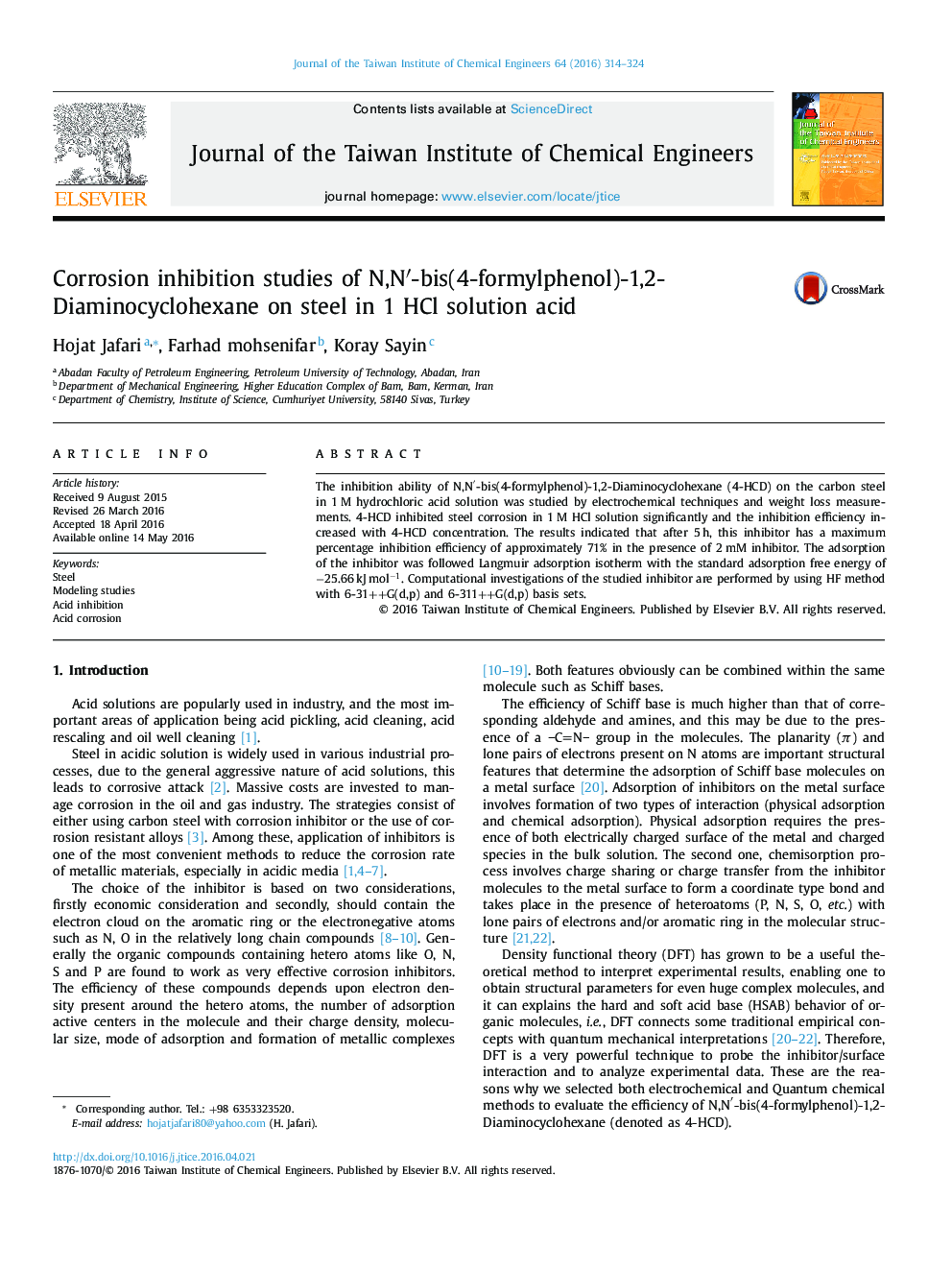| کد مقاله | کد نشریه | سال انتشار | مقاله انگلیسی | نسخه تمام متن |
|---|---|---|---|---|
| 690294 | 1460410 | 2016 | 11 صفحه PDF | دانلود رایگان |

• 4-HCD has an good inhibition effect for the corrosion of carbon steel in 1 M HCl solution.
• It's inhibition efficiency is dependent on concentration and time. The maximum inhibitor efficiency for 4-HCD was observed at in the presence of 2 mM inhibitor after 5th hour.
• The adsorption of 4-HCD molecules on carbon steel surface has been described Langmuir adsorption isotherm.
• Quantum chemical Q1 investigations of cis and trans N,N'-bis(4-formylphenol)-1,2-Diaminocyclohexane are performed by using HF, which is ab-initio method, B3LYP and M062X, which are hybrid density functional theory (DFT) functions, with 6-31 ++ G(d,p) basis set in gas phase.
• Structural changes are investigated and proton affinity is calculated as 564.4 kJ mol−1.
The inhibition ability of N,N′-bis(4-formylphenol)-1,2-Diaminocyclohexane (4-HCD) on the carbon steel in 1 M hydrochloric acid solution was studied by electrochemical techniques and weight loss measurements. 4-HCD inhibited steel corrosion in 1 M HCl solution significantly and the inhibition efficiency increased with 4-HCD concentration. The results indicated that after 5 h, this inhibitor has a maximum percentage inhibition efficiency of approximately 71% in the presence of 2 mM inhibitor. The adsorption of the inhibitor was followed Langmuir adsorption isotherm with the standard adsorption free energy of −25.66 kJ mol−1. Computational investigations of the studied inhibitor are performed by using HF method with 6-31++G(d,p) and 6-311++G(d,p) basis sets.
Figure optionsDownload as PowerPoint slide
Journal: Journal of the Taiwan Institute of Chemical Engineers - Volume 64, July 2016, Pages 314–324